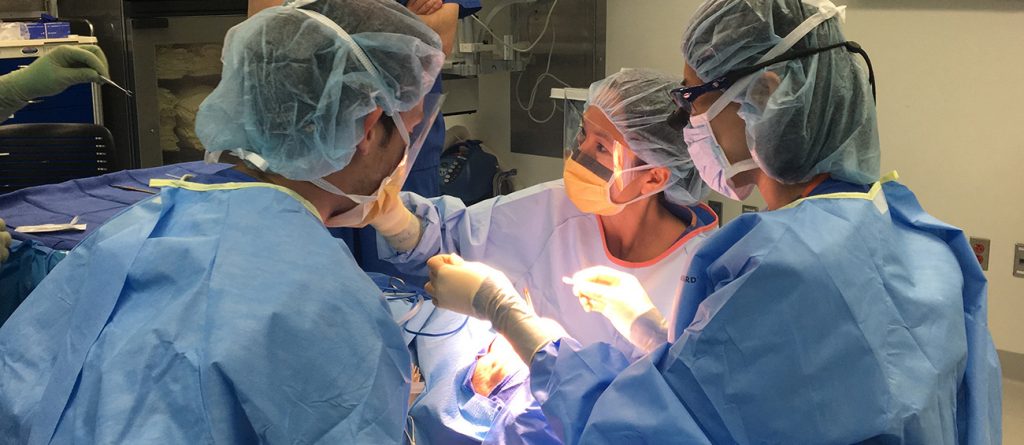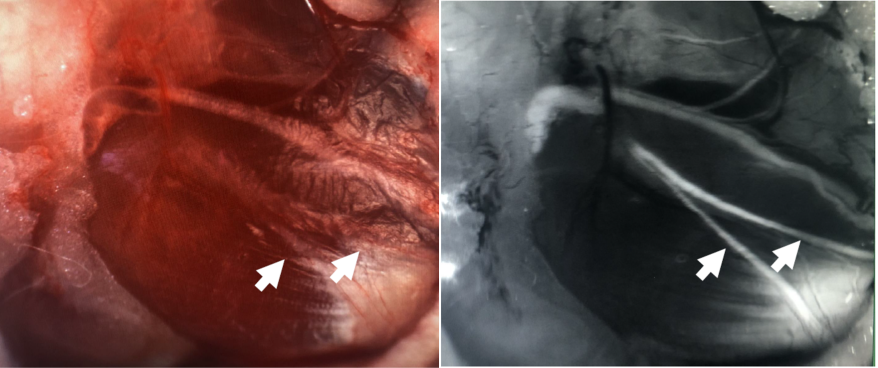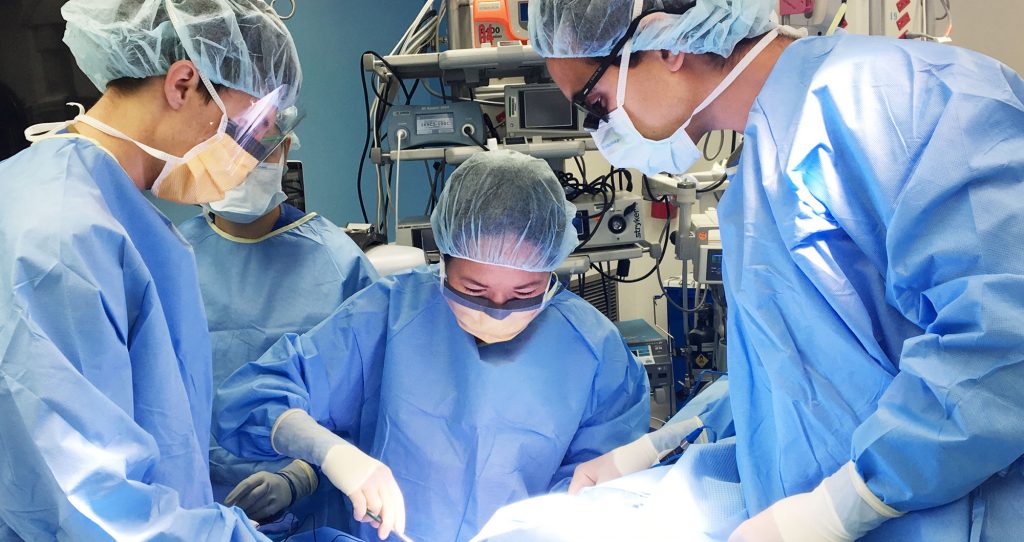Illuminating the Way for Precision Surgery
Loss of nerve function can be catastrophic. Up to 60% of all people undergoing head-and-neck surgery experience temporary or permanent nerve damage. Additionally, as many as 80% of prostate surgeries result in incontinence or erectile dysfunction because of nerve damage.
At Alume Biosciences, we believe that there is a better way to protect and preserve nerve function in surgery. Our nerve illumination technology has the potential to support surgeons so that patients everywhere can benefit. Learn how you can help us move surgery into the light.
Learn how Alume’s proprietary nerve illumination technology can be applied in surgery to support surgeons
About bevonescein (ALM-488)
Alume was born out of a collaboration between surgeon Dr. Quyen Nguyen and Nobel Laureate Dr. Roger Tsien working to develop bevonescein, a compound to make nerves glow during surgery and with the potential to make surgery safer. This research earned Dr. Nguyen a Presidential Early Career Scientist Award in 2014 and has been lauded by some of the world’s top surgeons.
Bevonescein is Alume’s breakthrough peptide currently in Phase 3 clinical trials. Alume plans to submit a New Drug Application for bevonescein to the U.S. Food and Drug Administration in 2025.

How It Works

Before Surgery
Patient receives ALM-488 through IV 60 minutes before surgery begins.



During Surgery
Illuminated nerves visible to the surgical team during patient surgery.



After Surgery
ALM-488 is cleared through the kidneys and gone from body in hours.
Hear From The Experts




